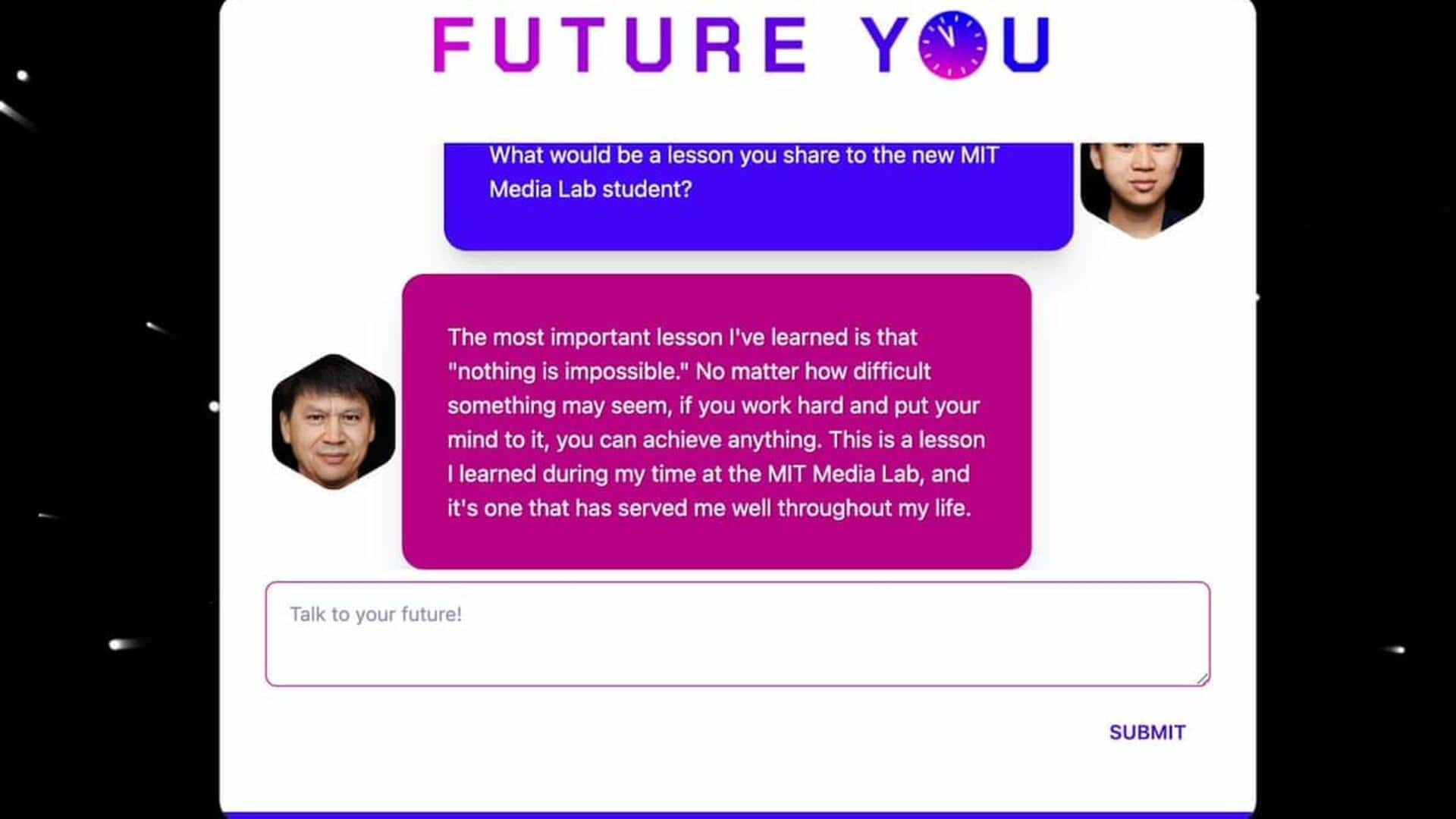
MIT's new AI chatbot can simulate users' future selves
What's the story
Researchers at the Massachusetts Institute of Technology (MIT) have created an AI-backed chatbot that simulates a user's older self. The chatbot, part of the Future You project at MIT's Media Lab, generates synthetic memories and uses current aspirations, to create narratives about a successful future life. "The goal is to promote long-term thinking and behavior change," said Pat Pataranutaporn, a member of the project team.
Interaction
AI chatbot encourages users to reflect
The chatbot presents a digitally aged profile picture of the user, encouraging younger users to envision their potential older selves. To interact with the bot, users answer questions about their personal history and future aspirations, and upload a portrait image which is then digitally aged to resemble them at 60 years old. Pataranutaporn shared his own experience with the chatbot, noting a profound conversation where it reminded him to spend time with his parents while he could.
User experience
Chatbot's impact on users' perception of future
The "future self" presented by the chatbot is not a prediction. Instead, it is a potential future self, depending on information provided by users. They are urged to explore different futures by changing responses to the questionnaire. A preliminary scientific paper revealed that trials involving 344 volunteers discovered that conversations with the chatbot, left people feeling less anxious and more connected to their future selves. This could encourage better life decisions, from focusing on certain goals to saving for future.
Opinion
MIT's project applauded for its application
Ivo Vlaev, a professor of behavioral science at the University of Warwick, lauded the MIT project as a "fascinating application" of behavioral science principles. He noted that it could seriously impact how people make decisions today keeping their future well-being in mind, provided it can simulate meaningful as well as relevant conversations.